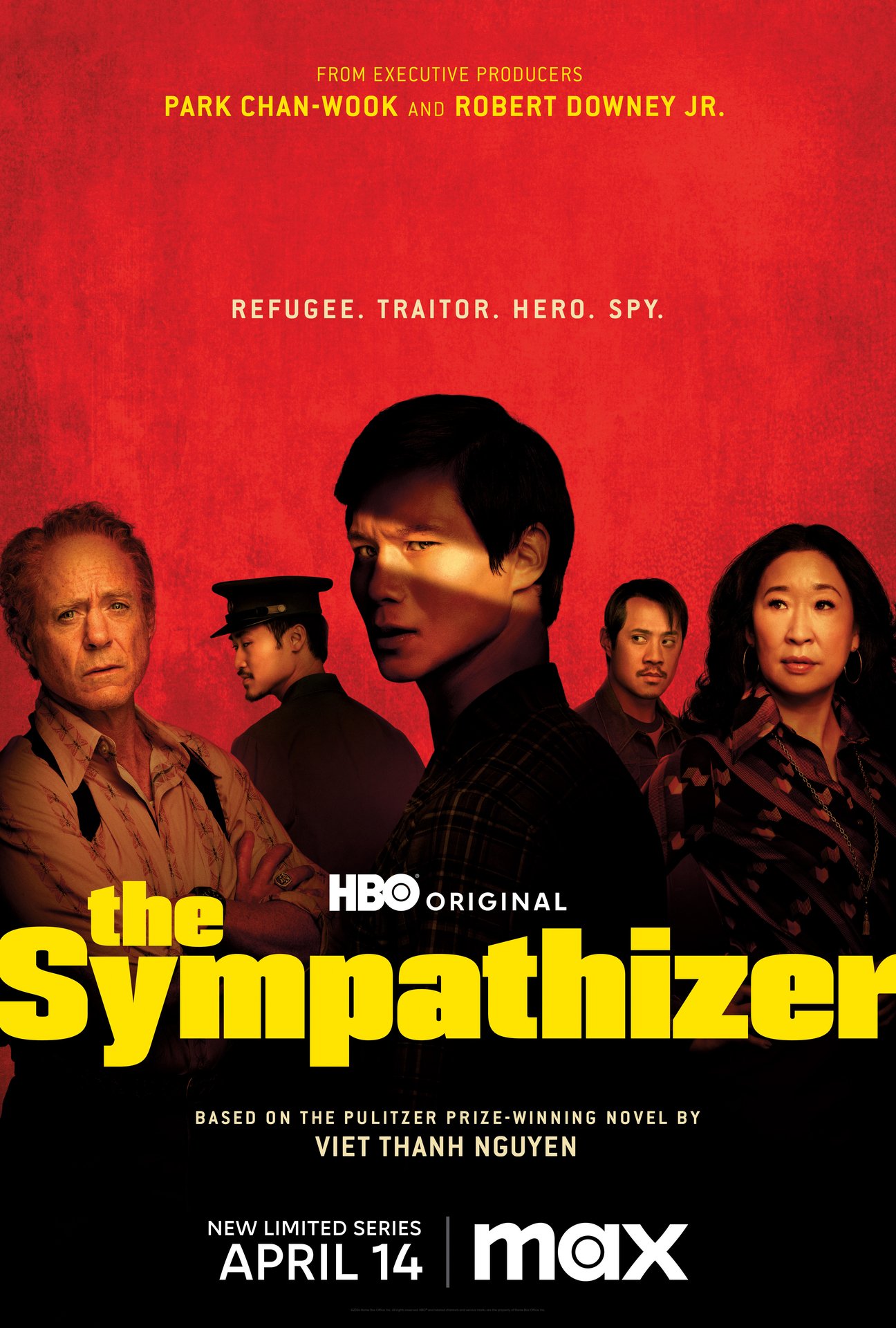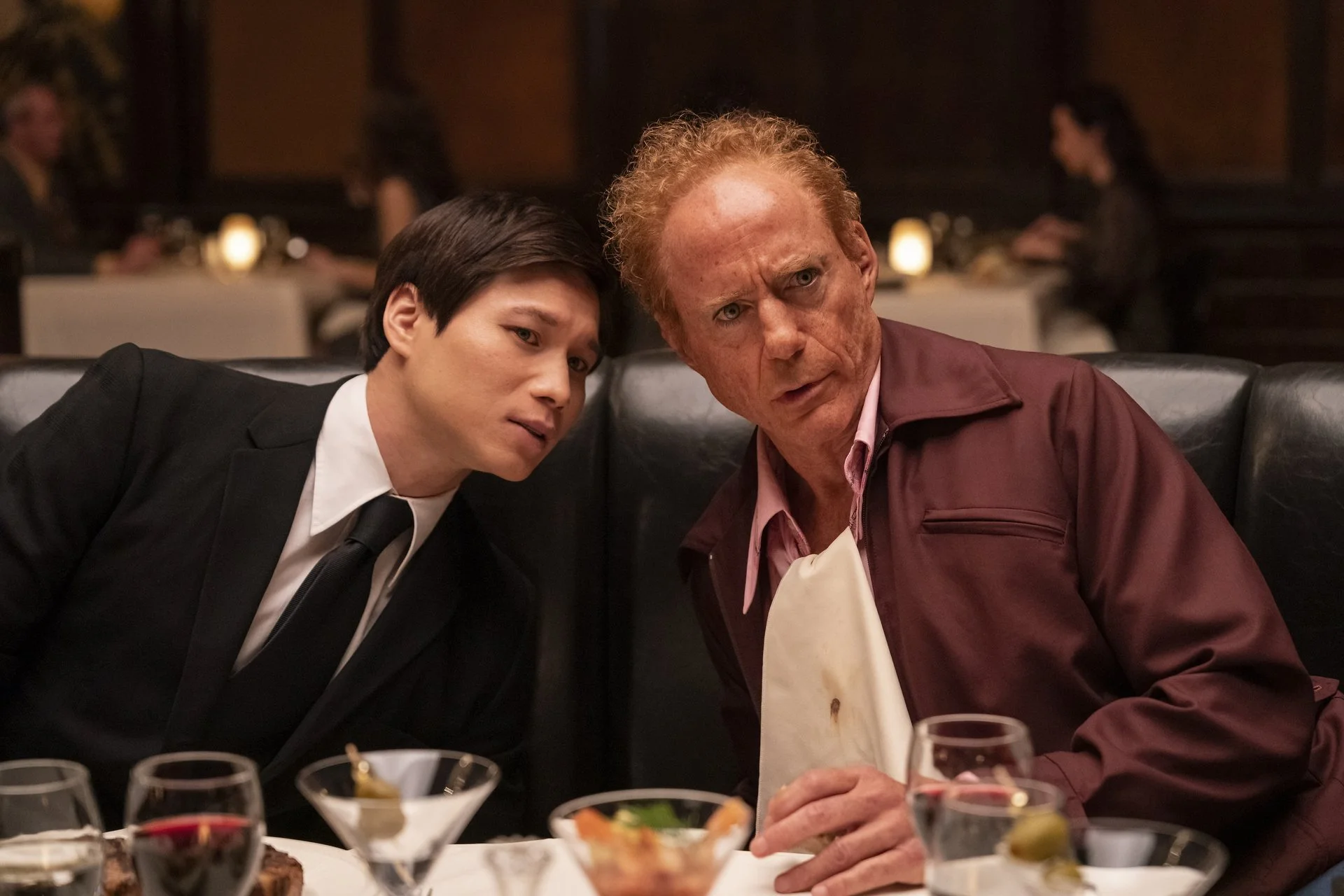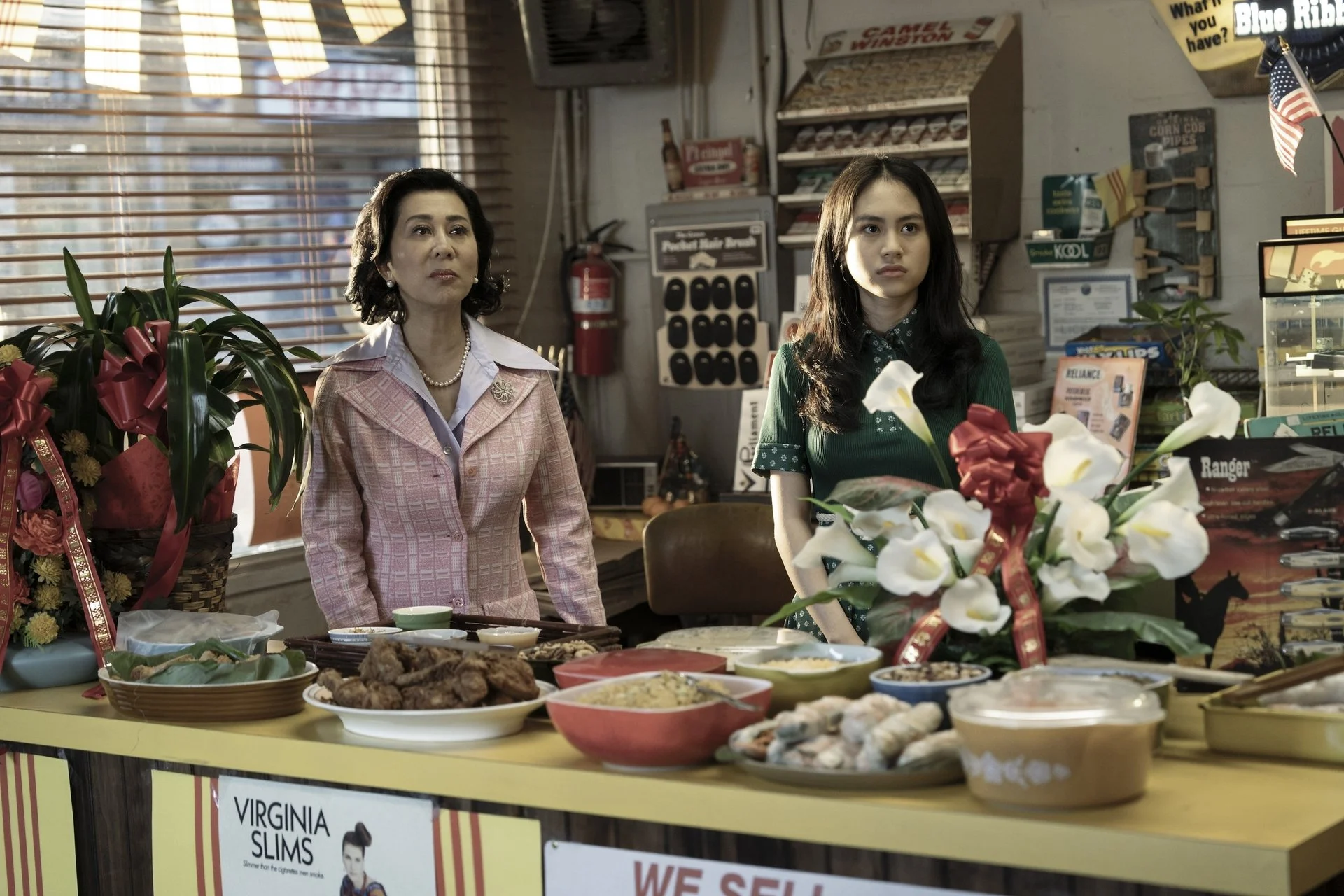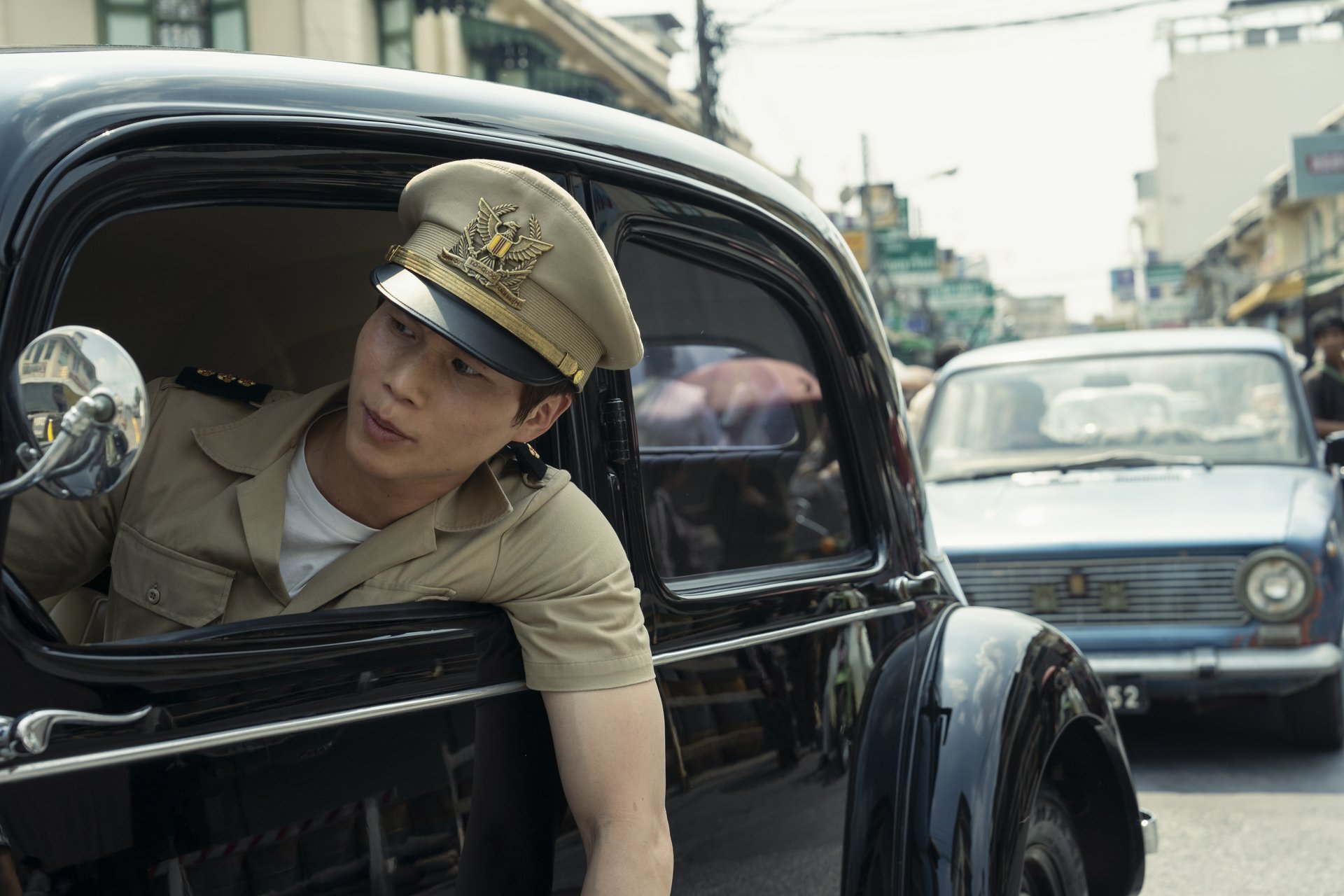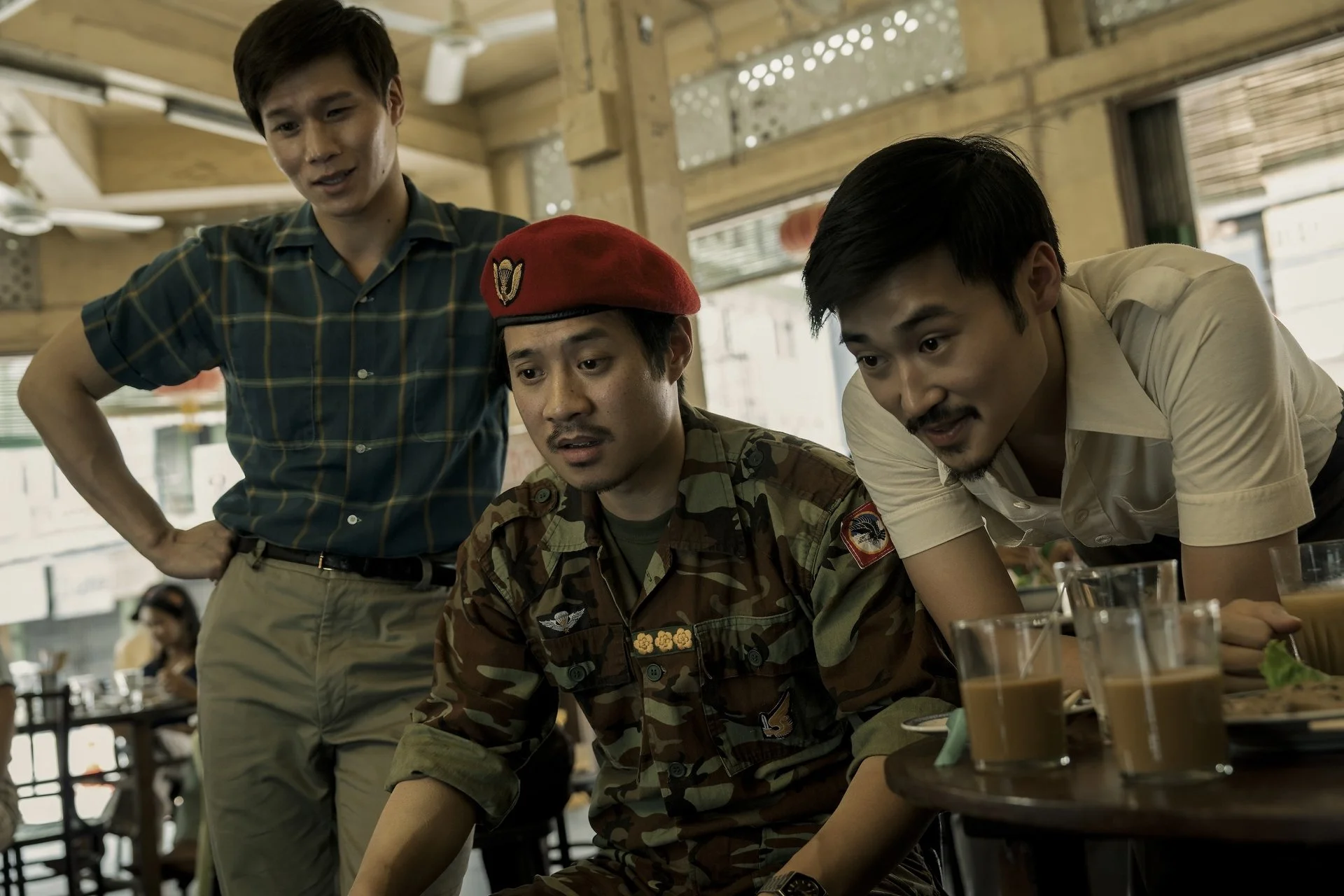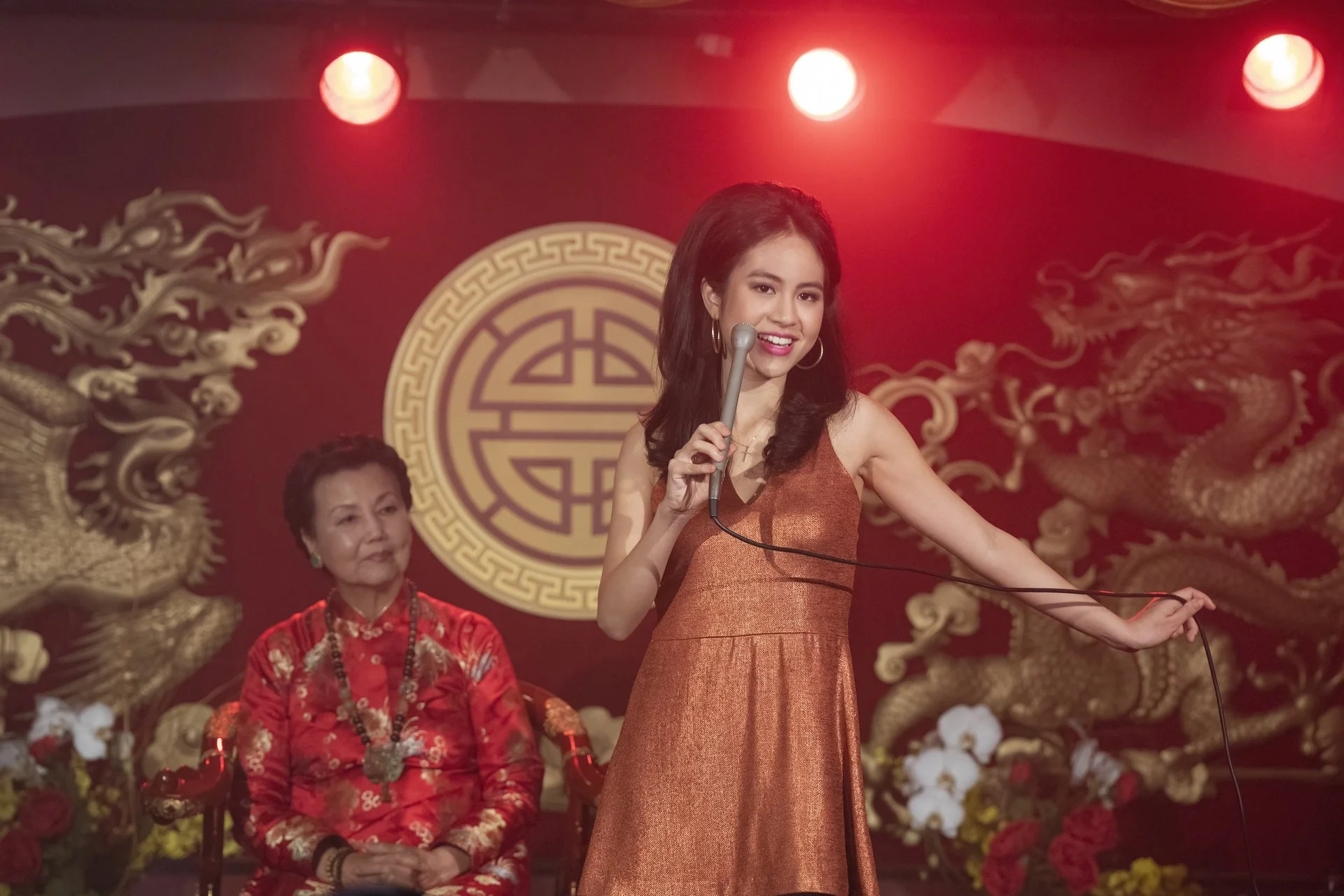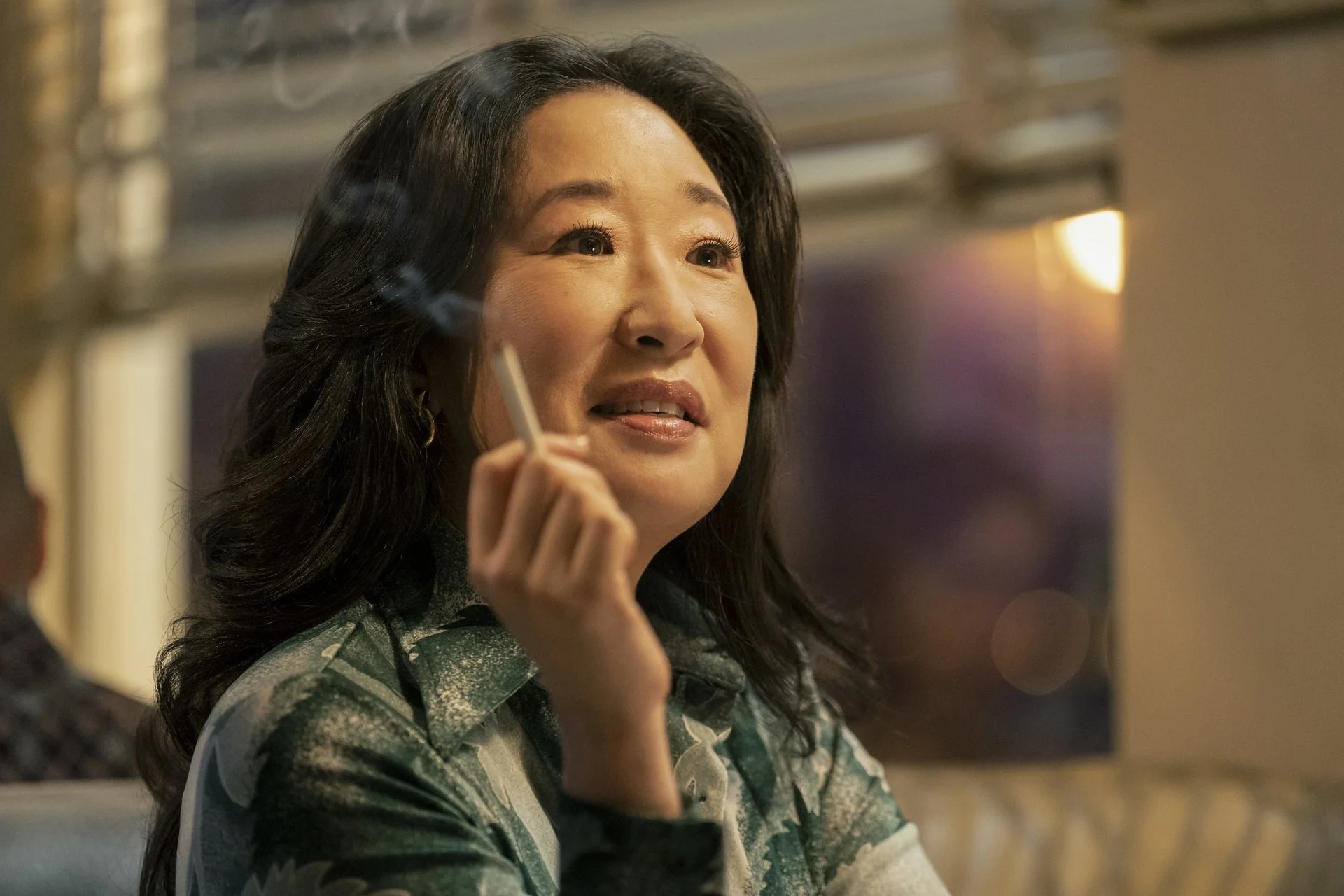HBO’s ‘The Sympathizer’ Puts Vietnamese People in the Spotlight of Their Stories
The new HBO show based on Viet Thanh Nguyen’s award-winning novel skewers western representations of Asians and the Vietnam War.
Hoa Xuande in The Sympathizer. Photo: Hopper Stone/HBO.
When Viet Thanh Nguyen’s Pulitzer Prize-winning novel The Sympathizer first came out, it was a revelation. A high-speed espionage thriller on its surface, Nguyen’s novel also portrayed complex themes around fragmented identity, westernization, capitalism, Americanness and representations of the Vietnam War in Hollywood. Now, the novel is being adapted into a seven-episode HBO miniseries of the same name.
Both the book and series follow an unnamed narrator (simply referred to as the Captain), a half-Vietnamese half-French communist double agent whose undercover mission leads him to Los Angeles after the Fall of Saigon in 1975. There, he finds himself in increasingly dangerous situations until he eventually lands in a Vietnamese re-education camp (where the show begins) and he’s forced to produce a written confession of everything he’s done on his mission. This confession serves as the framework for the series, with the narrative skipping forwards and backwards in time according to the Captain’s stream-of-consciousness writing.
Photo: HBO.
Co-showrun by iconic Korean director Park Chan-wook (Decision to Leave, Oldboy) and Canadian actor and writer Don McKellar, The Sympathizer’s miniseries is just as audacious as its source material. For Park, adapting Nguyen’s book meant not adhering too strictly to “the order of the original novel,” he tells RepresentASIAN Project. “That means maybe taking it apart and putting it all together again to make it a new thing that preserves the psychology and theme of the original novel.”
The novel, Nguyen has said, was to be a counter-narrative about the Vietnam War to the ideas about the war that are omnipresent in the west, thanks to movies like Apocalypse Now and Full Metal Jacket. These films often focused on the American involvement in the war, maximizing the heroics and sacrifices of the G.I.s while leaving the Vietnamese in the backdrop. (Notably, episode four of The Sympathizer has the Captain work as a cultural consultant for one such film—it’s a must-watch, satirical look at white “auteurs” telling stories about racialized people around the world). Instead, The Sympathizer miniseries flips that, giving the Vietnamese and their complicated and differing worldviews the spotlight it deserves. And, like Park says, the miniseries reflects that consciousness.
Hoa Xuande and Robert Downey Jr. in The Sympathizer. Photo: HBO.
The Sympathizer stars well-known actors like Robert Downey Jr. (who portrays a litany of entitled white men who embody the face of the American establishment, like a CIA agent, an “Oriental Studies” professor and a Francis Ford Coppola-like filmmaker), but it also introduces North American audiences to an ensemble cast of Vietnamese actors—many in their breakout roles.
And, they are portraying Vietnamese people, in a project about Vietnam and Vietnamese history. Which is major—especially as Hollywood often casts Asian performers interchangeably. “We are finally being heard,” says Ky Duyen, who is also a singer and the emcee of Vietnamese American variety show Paris by Night. “For HBO to put everything that they have behind the show—like, to have a billboard with a Vietnamese leading man front and centre means we aren’t just the fringe. We’re centre stage.”
Ky Duyen and Vy Le in The Sympathizer. Photo: Hopper Stone/HBO.
Vietnamese Australian Hoa Xuande plays the Captain, in what is sure to be a career-defining and making role (before this, Xuande had just one major American credit, in Cowboy Bebop, and a few small roles in Australia).
Hoa Xuande in The Sympathizer. Photo: Hopper Stone/HBO.
The ensemble is rounded out by Vietnamese Canadian actors Fred Nguyen Khan and Duy Nguyen who portray Bon and Man, the Captain’s childhood best friends, Toan Le as the South Vietnamese general, Vy Le as the General’s daughter Lana, Ky Duyen as the General’s wife, director Phanxinê as the Major and iconic actor Kieu Chinh (Joy Luck Club) as the Major’s mother.
Hoa Xuande, Fred Nguyen Khan, Duy Nguyen in The Sympathizer. Photo: Hopper Stone/HBO.
And they’re not just playing stereotypes—like the manic Vietcong soldier or the noble South Vietnamese soldier in cahoots with the Americans. They’re all layered and have complex ideologies and identities that go deeper than just their ethnicity and which side of the war they’re on.
Kieu Chinh and Vy Le in The Sympathizer. Photo: Beth Dubber/HBO.
allowed him to reflect on his experiences growing up in Australia, where he “struggled with [his] idea of what being Vietnamese was and what [his] idea of what being Australian was.” That duality, he says, is key to the Captain too. “His biracial identity feeds into his ideologies and what his purpose is, who he should fight for and who he should trust,” Xuande explains. “I found that actually quite familiar, walking the thin line of pleasing but also standing up, knowing when to sit down and when to speak up.”
Sandra Oh (Killing Eve, Gray’s Anatomy), describes her character, the free-loving Japanese American Ms. Sofia Mori, as a modern lady who is “not to be bossed around.” She fights against racist stereotypes by doubling down on her Americanness.
Sandra Oh in The Sympathizer. Photo: Hopper Stone/HBO.
But like the other Asian characters, she also has a more nuanced character arc that, in this case, transcends her initial trope. “She starts questioning her Asian American identity,” says Oh. “She’s inspired […] to examine her own hypocrisy and how she has been assimilated and why she has assimilated the way that she has.” Oh herself calls out Ms. Sofia Mori’s stance as “dated,” but also notes that it’s a fascinating look into a character who begins a journey of self-discovery and appreciation surrounding their identity.
That’s the true strength of The Sympathizer. On top of amazing performances, a stunning visual language and a dense plot that comes to life thanks to stellar screenwriting, The Sympathizer flips the traditional representations of the Vietnamese war—casting a side eye at the American-centricity that came before it. It’s a much-needed and long-awaited entry into the already large canon of Vietnam War media, nearly 50 years since the Fall of Saigon.
The Sympathizer is airing now on HBO.


